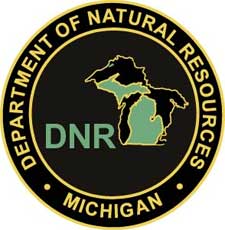

Michigan –-(Ammoland.com)- The Michigan Department of Natural Resources today announced the recipients of the 2016 Wildlife Habitat Grants. A total of $933,892 was awarded to various conservation organizations, units of government, landowners and nonprofit organizations for projects to be completed by Sept. 30, 2018.
Examples of funded projects include enhancement of large grassland complexes, winter deer complexes, mast-producing food sources, forest openings and small game habitat.
The successful applicants, the counties in which their habitat projects will take place and the amounts awarded are:
- Grand Traverse Conservation District (Grand Traverse), $106,975
- Green Timber Consulting Foresters (Marquette), $52,668
- Huron Pines (Cheboygan), $118,287
- Lapeer Conservation District (Lapeer), $40,008
- Muskegon Conservation District (Newaygo), $34,138
- National Wild Turkey Federation (Crawford/Oscoda), $174,442
- National Wild Turkey Federation (Barry/Montcalm/Newaygo/Oceana), $93,429
- Pheasants Forever (Jackson/Washtenaw), $41,727
- Pheasants Forever (Huron), $118,439
- Ruffed Grouse Society (Cheboygan, Delta, Osceola), $98,746
- Superior Watershed Partnership (Marquette), $55,033
After each grant cycle, the DNR has made improvements to the program, which benefits both conservation partners and wildlife. One important improvement includes increasing this grant period to two years, which will improve project quality. The longer grant period and higher project quality have coincided with applicants requesting larger dollar amounts, resulting in fewer projects funded than in the past, but greater overall wildlife and public benefit.
The Wildlife Habitat Grant Program began in October 2013 and is funded with a portion of the revenue from hunting and fishing licenses sold each year. The grant program is administered by the DNR through a cooperative effort between its Wildlife Division and Grants Management Section.
The grant program’s main objective is to enhance and improve the quality and quantity of game species habitat in support of a specific goal from the DNR Wildlife Division’s strategic plan.
To learn more about the Wildlife Habitat Grant Program, visit www.michigan.gov/dnr-grants.
